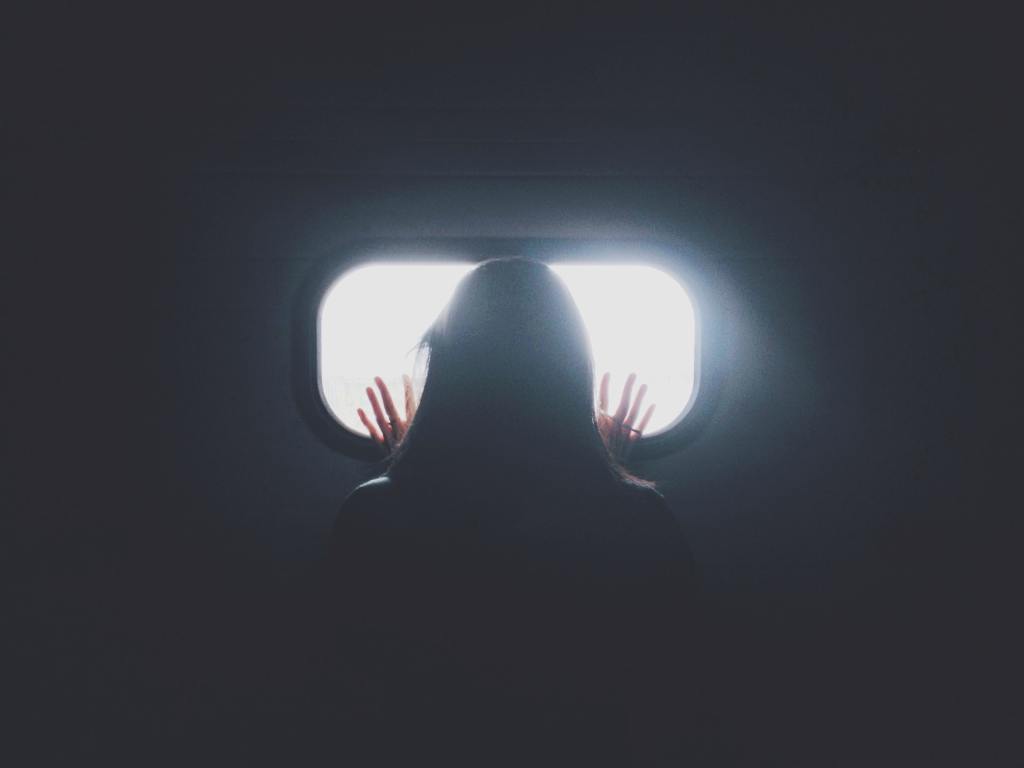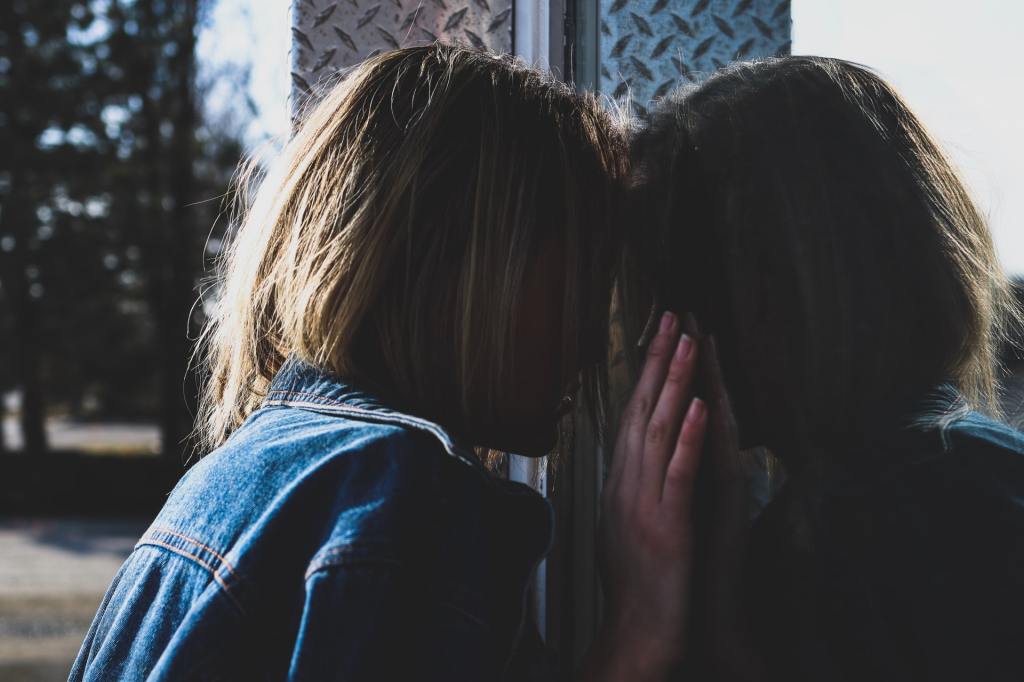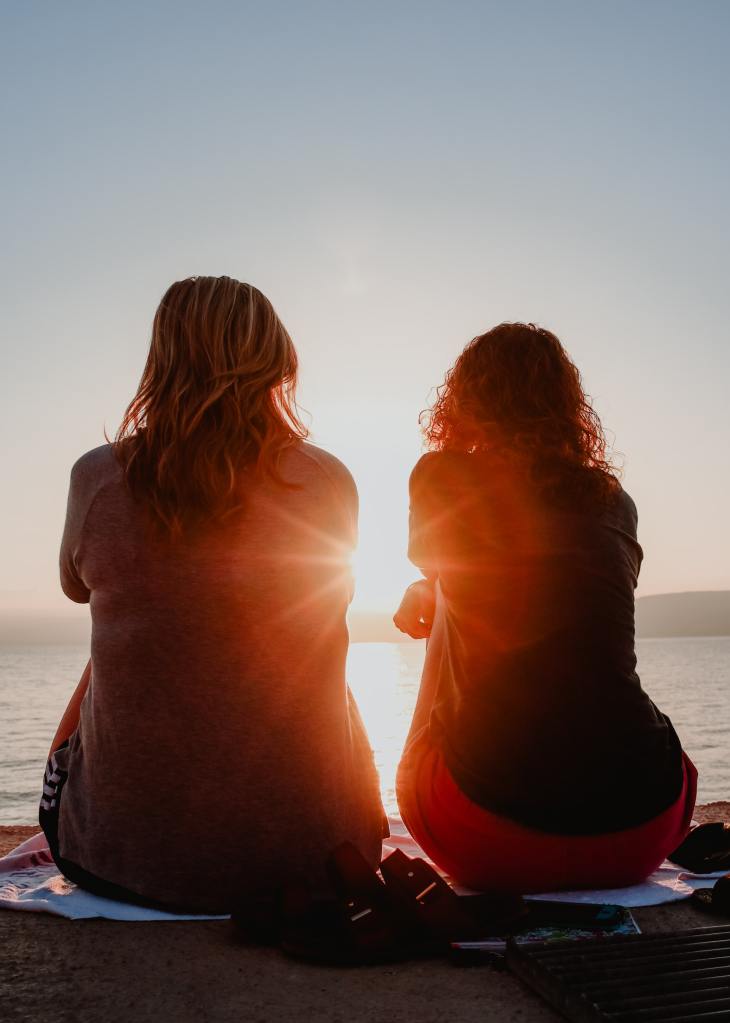Catherine. P
Sometimes shortened to “comphet”, compulsory heterosexuality is a phenomenon that affects mostly women. Societal expectations to be heterosexual are often imposed on women more so than men. When this term was first popularized, it was purported that women are taught to value the relationships with men over those with women. The problem with this is that women are often just expected by society to have relationships with male partners, and as women internalize this sentiment, they grow to negate the importance and value they draw from their female relationships.
It often takes time to overcome this internalized value and to look beyond societal expectations. For some, it might take a lifetime, and for others, there may be a pivotal point in their youth that triggers them to examine these values.
What I found personally, was that taking the time to examine society’s expectations in contrast to my own was vital, and not doing so would leave me feeling miserable and unfulfilled.
Layered Encounters

― Chloe Caldwell, I’ll Tell You in Person
I’ve dated men and women. However, a lot of people come up to me and say, “Oh, you’re that girl who used to be straight”, or “you’re that Bi-curious girl” or “you’re definitely bisexual, or even, “You’re a converted lesbian.”
I sometimes find it painful to feel as though the relationships I’ve had with women are made to seem less valid by some. This contradicts my internal feeling that the relationships I had with men never seemed to be deep or valid in themselves, and those with women felt far more real.
Every person has the right to identify their own sexuality and gender identity, without having to answer to anyone else. So why is it that others felt the need to label, to make others fit into a box, or invalidate certain experiences?
Getting By

― Chloe Caldwell, Women
For a long time, I couldn’t explain why being labeled by others as “bisexual” felt so offensive to me. For some reason, it seemed as if my experiences with men were deemed to be more legitimate than the experiences I had with women, despite letting people know that I didn’t truly feel that having a male partner was as emotionally fulfilling to me.
Growing up, I never had a boyfriend. I felt like when I expressed interest in boys, a lot of the time I was doing it because I felt closer to my female peers that way. In middle school, girls would often ask me which celebrity I found to be the hottest or the male celebrity I would most likely like to date. Questions along those lines always made me feel awkward, that I had nothing to say.
My own mother used to ask me whether I was asexual growing up because I would feel so uncomfortable every time she would try to discuss boy crushes with me. In high school, I spent a lot of time with a female friend, and she then asked me if I was a lesbian, but at the time I felt shame as though it was wrong. I was too young to be comfortable enough with myself.
Read More:
- Stuck: Black, Unwell, and in Need of Care
- Phoenix Rising: A Concept Queen’s Journey from Trauma to Glamor
- Translating Black Femaleness Through the Chinese Gaze
When I lost my virginity to a man, I was much older than most of my peers. I remember feeling like the odd one out. Even though I was no longer in high school, I felt more like I had to do it out of pressure. But did I want to? Probably not. Did I enjoy it? Not at all.
Since then, I’ve had a total of two boyfriends. But what I would like to point out is this: In doing so, I often felt pressured, ashamed, or like I had something to prove. I have never, not once in my life, felt like I had sex with a man out of pure desire. Relationships with men, at least in my case, seemed to be formed only out of a desire for companionship. And I continued to mistake this desire for companionship with romantic feelings for a long time.
Bottom Line

― Chloe Caldwell, Legs Get Led Astray
I had had sexual interactions with other women, but it wasn’t until I completely fell in love with a woman that I realized that none of my previous romantic relationships with men were actually romantic. One of my best friends to this day was someone I met in high school and shared several sexual interactions with. My mother often asked me if we were a lesbian couple, to which I would quickly respond “No.” She would ask me if I had unreciprocated romantic feelings for this friend, which might have been the case. But, for most of my life, I felt as though these were feelings best to hide.
After two unsuccessful relationships with men, I felt alone, lonely, and afraid. After the first, I left him because I couldn’t stand the thought of pursuing a future with him. Looking back, I realize that had a lot to do with the fact that he was someone of the opposite gender. How could I see myself with him? He wanted to marry me, but his level of commitment scared me. I remember leaving our shared apartment, with nowhere to go.
In Beijing, I had another boyfriend, who I was afraid to let go of. At the time, he felt like my best friend. However, he broke up with me, and I am so thankful he did, and not just because our relationship was toxic. There was never any aspect to our relationship that I could say was fully romantic. It was instead very one-sided and transactional. I remember buying him gifts and dressing sexually to please him.

― Chloe Caldwell, I’ll Tell You in Person
But the pervasive feeling was that I was doing all this to please someone else, and never once in that relationship did he come close to giving me what I needed.
When this relationship ended and although I was in extreme pain at the loss of a partner, I recovered from it surprisingly quickly. Eventually, I met a woman who threw my life upside down. My entire viewpoint of life shifted, and for the first time, I thought I was with the person I could be with for the rest of my life.
All of that changed when she left me and cut ties. I don’t blame her necessarily, as that might have been what she needed in her life at that time, whether or not it was fair. However, the pain I felt after that was unlike anything I had ever felt before: It was pure daily suffering. The abandonment I felt from a woman was at least one hundred times worse than anything a man had ever done to me. It took about a year of spontaneous tears before I began to regain my sanity.
Having to go through this extreme level of pain is not something I regret in the slightest. I think it was In fact pivotal to my life. Without this experience, would I have ever known I was happier with a woman than with a man? Would I have figured out that being with a woman was the only possible way I can see myself ending up? I realized that I would rather end up alone than ever be with a man, and that is fine. As I grew to accept this, I also became more aware of the concept of compulsive heterosexuality.
I strongly encourage everyone to evaluate society’s expectations of them versus what they desire in their own life. Many women may find that they have never truly reflected on this deeply and that they feel compelled to adhere to societal norms more than they may know.
Photos: Unsplash

4 thoughts on “Compulsory Heterosexuality: One Silent Warrior’s Journey to Self-Discovery”